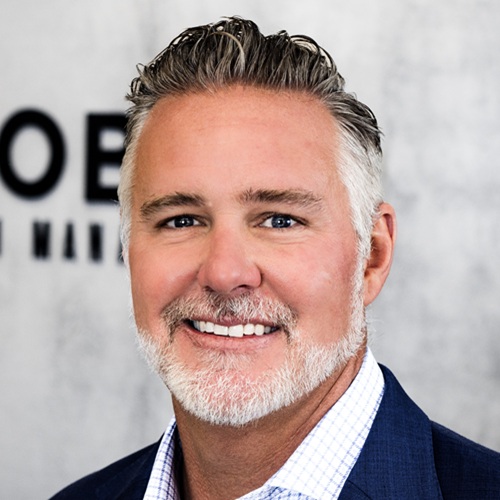Is a Roth Conversion Right for You?
Based on current tax laws, three different types of people stand to benefit by moving funds out of their traditional IRAs into a Roth. See if the timing and tax benefits make sense for your plan.


Profit and prosper with the best of Kiplinger's advice on investing, taxes, retirement, personal finance and much more. Delivered daily. Enter your email in the box and click Sign Me Up.
You are now subscribed
Your newsletter sign-up was successful
Want to add more newsletters?

Delivered daily
Kiplinger Today
Profit and prosper with the best of Kiplinger's advice on investing, taxes, retirement, personal finance and much more delivered daily. Smart money moves start here.

Sent five days a week
Kiplinger A Step Ahead
Get practical help to make better financial decisions in your everyday life, from spending to savings on top deals.

Delivered daily
Kiplinger Closing Bell
Get today's biggest financial and investing headlines delivered to your inbox every day the U.S. stock market is open.

Sent twice a week
Kiplinger Adviser Intel
Financial pros across the country share best practices and fresh tactics to preserve and grow your wealth.

Delivered weekly
Kiplinger Tax Tips
Trim your federal and state tax bills with practical tax-planning and tax-cutting strategies.

Sent twice a week
Kiplinger Retirement Tips
Your twice-a-week guide to planning and enjoying a financially secure and richly rewarding retirement

Sent bimonthly.
Kiplinger Adviser Angle
Insights for advisers, wealth managers and other financial professionals.

Sent twice a week
Kiplinger Investing Weekly
Your twice-a-week roundup of promising stocks, funds, companies and industries you should consider, ones you should avoid, and why.

Sent weekly for six weeks
Kiplinger Invest for Retirement
Your step-by-step six-part series on how to invest for retirement, from devising a successful strategy to exactly which investments to choose.
If you’re like many of my clients, the idea of converting some or all of your traditional IRA money to a Roth IRA pops into your head once or twice a year. Most likely this is as you’re preparing to file your income taxes or when you’re about to meet with your financial adviser to review your retirement plan.
Maybe you even discussed a Roth with your adviser or CPA in the past and decided the biggest drawback (paying taxes now on the money you move) outweighs the biggest benefit (you won’t have to pay taxes on it later). So you opted to put off the conversion decision.
If you haven’t had an analysis done lately, it’s time to reconsider the pros and cons. Because for the next few years, moving to a Roth could be a little less painful. The reforms of the 2017 Tax Cuts and Jobs Act include lower individual rates that will expire in 2026 – giving savers a small window to convert funds now to help create more wealth without incurring a large tax liability.
From just $107.88 $24.99 for Kiplinger Personal Finance
Become a smarter, better informed investor. Subscribe from just $107.88 $24.99, plus get up to 4 Special Issues

Sign up for Kiplinger’s Free Newsletters
Profit and prosper with the best of expert advice on investing, taxes, retirement, personal finance and more - straight to your e-mail.
Profit and prosper with the best of expert advice - straight to your e-mail.
If you think your tax rate will be even lower in the future (you can check out the new brackets at the IRS website), or if the timing doesn’t work with your overall retirement plan, you still may decide to pass. A Roth conversion isn’t for everyone.
However, if you fit the following criteria, you should take a look at what a Roth conversion could mean for you:
- If you’re in your early to mid-60s and you don’t expect you’ll need to pull income from your IRA during your lifetime. A Roth can help you avoid the dreaded required minimum distributions (RMDs), which start at age 70½, and preserve your savings for your heirs. Your heirs also will benefit from your forward thinking when it comes to their own taxes. With a traditional IRA, non-spousal beneficiaries are required to take minimum distributions and pay taxes at what could be the highest rates of their lives. Their Roth RMDs will be tax-free; you’re paying the taxes now so your beneficiaries won’t have to pay them later. This makes a Roth an appealing gifting strategy.
- If you’re younger and will need the income from your IRA, but you have the ability to pay any additional taxes from the conversion with funds outside of your retirement accounts. Even if you’re younger than 59½, you can convert money to a Roth without paying the 10% early withdrawal penalty to the IRS. So, for example, those in their 50s can take advantage of the lower tax rates by converting now, and withdrawals taken as retirement income will be tax-free. If you anticipate healthy pension checks and Social Security payments and/or expect to lose some much-relied-upon tax deductions in retirement, a Roth can be an important tax strategy.
- If you’re in your 70s and already taking RMDs. Those who were caught off guard by the impact of RMDs on their taxes in retirement may still benefit from a Roth conversion. Remember, depending on your account balance, your RMDs likely will grow larger each year — and you might be around for another 20 or 30 years. An analysis can tell you if it’s worth doing a conversion once you’re over age 70½.
Converting your retirement savings to a Roth account isn’t difficult. But no matter what your age or circumstances, there are rules — and penalties if you don’t follow those rules. Be sure to get advice from a trusted professional, such as your financial adviser, a CPA or both.
Start with an analysis that takes into consideration how your needs will change over your lifetime along with your short- and long-term goals. Don’t delay. There’s a good chance taxes will rise in the future, so a Roth conversion is especially appealing right now. Don’t miss out on this significant opportunity.
Kim Franke-Folstad contributed to this article.
Although there is no up-front tax deduction for Roth IRA contributions, qualified distributions are income tax free.
This material is for informational purposes only. It is not intended to provide tax, accounting or legal advice or to serve as the basis for any financial decisions. Individuals are advised to consult with their own accountant and/or attorney regarding all tax, accounting and legal matters.
Securities offered through Madison Avenue Securities, LLC (MAS), member FINRA/SIPC. Advisory services offered through Global Wealth Management Investment Advisory (GWM), a Registered Investment Advisor. MAS and GWM are not affiliated entities.
The appearances in Kiplinger were obtained through a PR program. The columnist received assistance from a public relations firm in preparing this piece for submission to Kiplinger.com. Kiplinger was not compensated in any way.
Profit and prosper with the best of Kiplinger's advice on investing, taxes, retirement, personal finance and much more. Delivered daily. Enter your email in the box and click Sign Me Up.

Grant Conness is Managing Director and Co-Founder of Global Wealth Management, recognized as the No. 1 financial advisory firm in Southeast Florida by USA TODAY's 2025 Best Financial Advisory Firms list.* With more than 20 years of experience, Grant focuses on helping clients navigate the critical five years before and after retirement through the firm's proprietary Retirement Roadmap Review process. Grant is co-host of Retire Now South Florida on NBC, CBS, ABC and FOX, and he has been quoted in The Wall Street Journal.** He is also co-author of Charting Your Financial Course.
-
 When Estate Plans Don't Include Tax Plans, All Bets Are Off
When Estate Plans Don't Include Tax Plans, All Bets Are OffEstate plans aren't as effective as they can be if tax plans are considered separately. Here's what you stand to gain when the two strategies are aligned.
-
 Relying on Real Estate in Retirement? Avoid These 3 Mistakes
Relying on Real Estate in Retirement? Avoid These 3 MistakesThe keys to successful real estate planning for retirees: Stop thinking of property income as a reliable paycheck, start planning for tax consequences and structure your assets early to maintain flexibility.
-
 These Small Money Habits Really Can Plant Roots
These Small Money Habits Really Can Plant RootsFebruary gets a bad rap for being the month when resolutions fade — in fact, it's the perfect time to reset and focus on small changes that actually pay off.
-
 When Estate Plans Don't Include Tax Plans, All Bets Are Off: 2 Financial Advisers Explain Why
When Estate Plans Don't Include Tax Plans, All Bets Are Off: 2 Financial Advisers Explain WhyEstate plans aren't as effective as they can be if tax plans are considered separately. Here's what you stand to gain when the two strategies are aligned.
-
 Counting on Real Estate to Fund Your Retirement? Avoid These 3 Costly Mistakes
Counting on Real Estate to Fund Your Retirement? Avoid These 3 Costly MistakesThe keys to successful real estate planning for retirees: Stop thinking of property income as a reliable paycheck, start planning for tax consequences and structure your assets early to maintain flexibility.
-
 I'm a Financial Planner: These Small Money Habits Stick (and Now Is the Perfect Time to Adopt Them)
I'm a Financial Planner: These Small Money Habits Stick (and Now Is the Perfect Time to Adopt Them)February gets a bad rap for being the month when resolutions fade — in fact, it's the perfect time to reset and focus on small changes that actually pay off.
-
 Social Security Break-Even Math Is Helpful, But Don't Let It Dictate When You'll File
Social Security Break-Even Math Is Helpful, But Don't Let It Dictate When You'll FileYour Social Security break-even age tells you how long you'd need to live for delaying to pay off, but shouldn't be the sole basis for deciding when to claim.
-
 I'm an Opportunity Zone Pro: This Is How to Deliver Roth-Like Tax-Free Growth (Without Contribution Limits)
I'm an Opportunity Zone Pro: This Is How to Deliver Roth-Like Tax-Free Growth (Without Contribution Limits)Investors who combine Roth IRAs, the gold standard of tax-free savings, with qualified opportunity funds could enjoy decades of tax-free growth.
-
 One of the Most Powerful Wealth-Building Moves a Woman Can Make: A Midcareer Pivot
One of the Most Powerful Wealth-Building Moves a Woman Can Make: A Midcareer PivotIf it feels like you can't sustain what you're doing for the next 20 years, it's time for an honest look at what's draining you and what energizes you.
-
 I'm a Wealth Adviser Obsessed With Mahjong: Here Are 8 Ways It Can Teach Us How to Manage Our Money
I'm a Wealth Adviser Obsessed With Mahjong: Here Are 8 Ways It Can Teach Us How to Manage Our MoneyThis increasingly popular Chinese game can teach us not only how to help manage our money but also how important it is to connect with other people.
-
 Looking for a Financial Book That Won't Put Your Young Adult to Sleep? This One Makes 'Cents'
Looking for a Financial Book That Won't Put Your Young Adult to Sleep? This One Makes 'Cents'"Wealth Your Way" by Cosmo DeStefano offers a highly accessible guide for young adults and their parents on building wealth through simple, consistent habits.